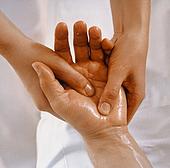In a way, it’s a good thing that we have our troubles.
Life is complex and when we go through personal troubles and come out unscathed we’re able to distill this knowledge and experience on others. We become wise and well-traveled. It won’t always mean the person will listen to what we have to say (or put it into action) but at least we’ve planted the seed which could help them somewhere down the line.
There’s no better area to share out wisdom than with those facing addiction – the ones that are close to rock bottom and don’t see a way out.
The troubles can manifest in any type of addiction:
· Gambling
· Alcohol
· Narcotics
· Sex
· Internet
· Shopping
It’s arguable which is worse (psychological versus physical) though we can all agree that addiction does not have a happy ending. In the end, there is only A) jail time, B) death, or C) alienation. The earlier the signs are recognized – the earlier the individual can get treatment and start the recovery.
Unfortunately, there are many that are well past the point of self-help.
What We can do to Help Others
Maybe you have wondered how to help an addict, especially if it is someone close to you who won’t seek help on their own.
We’ve gone through our troubles but not all of us have been that close to rock bottom. Not in the way that addicts have experienced. Yet, we can help them in some form or another.
Including…
Tough Love
Which can be as simple as learning when to say “no” to prevent enabling. This includes giving them rides, a place to crash, or money. The addict’s mind, though at the time may have good intentions, will revert to this ‘call of the void’. We must stand our ground if we wish to help them.
Helping Ourselves (First)
It’s hard to take someone seriously if they’re going through equally damaging problems. It comes across as hypocritical and makes them think “why should I trust this person?”. What we must do is help ourselves first so that we’re in a good position to help others.
Stop Controlling
There is no easy “fix” to addiction and you can bet they’ll only resist harder if you try to become overbearing and controlling. An addict will only quit when they’ve reached a mental or physical breaking point – the rock bottom – where they come to the realization they do need help. Until then the best you can do is to listen and learn, offer suggestions (not in a controlling way), and provide the resources to help them find professional help.
Awareness
Some turn a blind eye to the person while others have been in the dark. It’s those that are unaware of the addiction that leads to enabling. What we can do to help the addict is to bring awareness to their problem so it builds a larger support network while eliminating the codependency.
Words on Codependency
Codependency is a “relationship addiction” where a relationship is one-sided. It’s seen within addicts and other abusive relationships where one person is unwilling to walk away because they feel a compelling urge to help and stay by the individual despite the abuse.
Unfortunately, the addict mind knows this and uses it as an advantage. It encourages enabling and exacerbates mental illness. This comes full circle with A) tough love and B) self-help.
So to bring us back to the question of “how to help an addict?”…
Educate yourself about addiction, its consequences, and outcomes. Approach, suggest, and listen to the troubles. Don’t allow yourself to become the one on the receiving end of abuse. Provide resources, information, and support when they’re ready to take the first step toward recovery.




